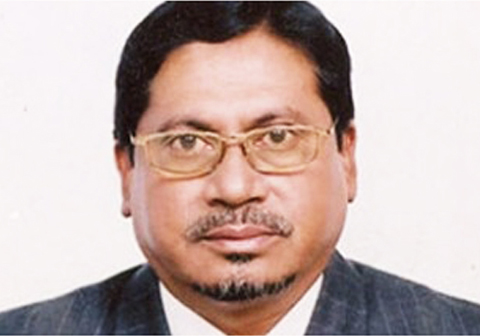Bangladesh President Abdul Hamid should intervene to stay the imminent execution of Muhammad Kamaruzzaman, a senior leader of the Jamaat-e-Islami party, said the ICJ today.
Kamaruzzaman was sentenced to death by the International Crimes Tribunal (ICT) in 2013 after an unfair trial, the ICJ says.
On Monday, 6 April 2015, the Bangladesh Supreme Court rejected Kamaruzzaman’s last-ditch petition for independent review of the sentence – he was claiming discrepancies in prosecution witness testimony during the trial – paving the way for his imminent execution.
“The ICJ has long supported the right of victims to seek truth and justice for the atrocities committed in the 1971 war to gain Bangladesh’s independence, but the death penalty, especially after a trial with procedural and substantive flaws, perpetuates the cycle of violence and is a perversion of justice,” said Sam Zarifi, the ICJ’s Director for Asia and the Pacific.
The ICJ has previously raised concerns that the ICT does not comply with international standards for fair trials.
Following the Supreme Court’s rejection of his review petition, Kamaruzzaman must now decide whether to seek clemency from the President, as the last resort.
The ICJ opposes capital punishment in all cases without exception.
The death penalty constitutes a violation of the right to life and the right not to be subjected to cruel, inhuman or degrading punishment.
“The death penalty is not justice and is the ultimate form of cruel and inhuman punishment,” Zarifi said. “Especially where the death penalty is concerned, the trial process has to meet the highest standards of fairness and due process, but this case falls far short of that.”
The ICJ calls on Bangladesh to impose an official moratorium on the death penalty, with a view to abolishing the death penalty outright.
Contact:
Sam Zarifi, ICJ Asia Pacific Regional Director (Bangkok), t: +66 807819002; email: sam.zarifi(a)icj.org
Background:
In May 2013, the ICT found Kamaruzzaman guilty of mass killing during the 1971 Liberation War and sentenced him to death.
In November 2014, the Supreme Court issued a judgment on appeal upholding Kamaruzzaman’s conviction and death sentence.
In December 2014, the UN General Assembly adopted a resolution, for the fifth time since 2007, emphasizing that the use of the death penalty undermines human dignity and calling on those countries that maintain the death penalty to establish a moratorium on its use with a view towards its abolition.
117 UN Member States, a clear majority, voted in favor of a worldwide moratorium on executions as a step towards abolition of the death penalty.




